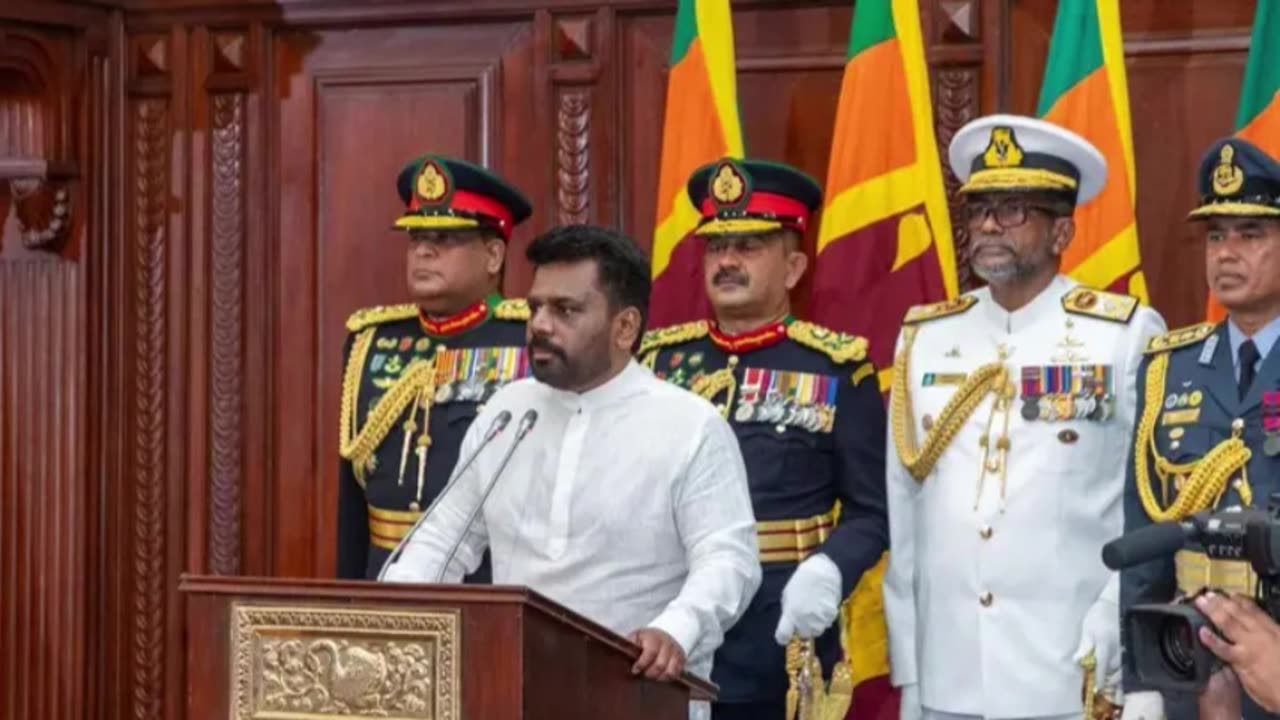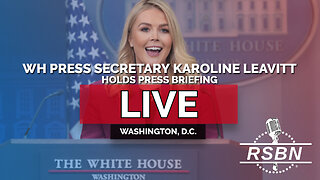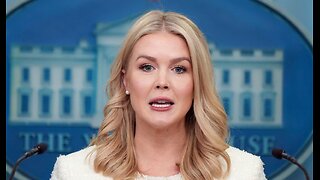Premium Only Content

Sri Lanka Election Briefing: A History, the Candidates, and India's Stake
Sri Lanka Election Briefing: A History, the Candidates, and India's Stake
This document provides a detailed briefing on the upcoming Sri Lankan elections based on the provided source, a transcribed video analysis in Hindi. It outlines the historical context of Sri Lanka's political landscape, analyzes the main contenders and their stances towards India, and assesses the potential impact of the election results on Indo-Sri Lankan relations.
Historical Context: The Genesis of Tension
The briefing traces the roots of the complex relationship between India and Sri Lanka back to the British colonial period.
Labor Migration and Religious Conversion: The British, needing labor for tea plantations in Ceylon (Sri Lanka), brought over Tamil people from Tamil Nadu in India. This migration, coupled with active Christian missionary work, led to a significant portion of Tamils converting to Christianity.
"They [British] understood one thing - there was a shortage of labor. To address this, they took Tamil people from the closest Indian state, Tamil Nadu."
Emergence of a Tamil Elite: This new Christian Tamil population gained access to education and administrative positions under the British, creating a class of English-speaking, Westernized Tamils who held administrative control during the early years of Sri Lankan independence.
Sinhalese Resentment and the Rise of Nationalism: This led to resentment amongst the Sinhalese majority, who felt marginalized in their own country. The Sinhalese government implemented discriminatory policies, such as making Sinhala the official language, disadvantaging the Tamil population.
"The Sinhalese, the native inhabitants, said... 'Why should these Indians administer us?'"
Civil War and the LTTE: The escalating tensions culminated in a brutal civil war (1983-2009), with the Liberation Tigers of Tamil Eelam (LTTE) emerging as the main Tamil militant group.
Post-War Politics and China's Entry
The briefing then delves into the post-civil war era, marked by China's growing influence in the region.
China's Strategic Investments: Capitalizing on Sri Lanka's need for post-war reconstruction and America's preoccupation with the Middle East, China invested heavily in infrastructure projects, including ports and resorts.
"China saw an opportunity... Sri Lanka's government was saying the civil war was over, and they wanted development."
India's Concerns and Rajapaksa's Ouster: India expressed concern over China's growing presence in Sri Lanka, particularly regarding the Hambantota Port, seen as a potential strategic asset for China in the Indian Ocean. This, combined with accusations of economic mismanagement and corruption, led to the defeat of pro-China President Mahinda Rajapaksa in 2015.
"China started demanding control of ports... India made it clear - 'We will not tolerate China's presence, especially regarding the port.'"
Economic Crisis and Political Upheaval: The COVID-19 pandemic dealt a severe blow to Sri Lanka's tourism-dependent economy, leading to an economic crisis characterized by high inflation, unemployment, and shortages. This fueled public anger towards the Rajapaksa family, leading to the resignation of President Gotabaya Rajapaksa in 2022.
The Current Election: Key Players and Potential Outcomes
The briefing analyzes the key candidates in the upcoming election and their potential impact on Indo-Sri Lankan relations:
Ranil Wickremesinghe: The incumbent president walks a tightrope between China and India. While accepting Chinese investments, he has also shown a willingness to cooperate with India on security matters.
"[Wickremesinghe] understands India's security and strategic interests."
Sajith Premadasa: He has campaigned on an anti-Indian investment platform, promising to review and potentially roll back Indian projects in Sri Lanka.
"[Premadasa] is not necessarily against India, but he's not pro-India either."
Anura Kumara Dissanayake: This Marxist candidate, heavily backed by China, blames the economic crisis on Indian influence and advocates for expelling foreign capital.
"[Dissanayake] is a cause for concern... he's openly pro-China and refuses to engage with India."
The briefing concludes by highlighting the stakes for India in the election. A victory for Wickremesinghe would likely maintain the current balance, while Premadasa's win might necessitate recalibration of economic engagement. However, a Dissanayake victory could significantly tilt Sri Lanka towards China, posing a potential security challenge for India.
Disclaimer: This briefing is based on a single source, a transcribed video in Hindi. Further research and analysis from diverse sources are recommended for a comprehensive understanding of the Sri Lankan political landscape.
-

Candace Show Podcast
1 hour agoShould We Feel Bad For Blake Lively? | Candace Ep 157
10.7K7 -
 LIVE
LIVE
The Nerd Realm
2 hours agoHollow Knight Voidheart Edition #19 | Nerd Realm Playthrough
558 watching -
 1:17:27
1:17:27
Awaken With JP
4 hours agoThe Current Thing: Tesla Protesting - LIES Ep 82
48.8K18 -
 1:07:08
1:07:08
Sean Unpaved
1 hour agoNFL Free Agency Rolls On! MLB Spring Training Heats Up along with 3x World Series Champ Dave Stewart
7.78K2 -
 2:10:15
2:10:15
Right Side Broadcasting Network
6 hours agoLIVE REPLAY: White House Press Secretary Karoline Leavitt Holds Press Briefing - 3/11/25
102K30 -
 2:06:00
2:06:00
The Quartering
5 hours agoTrump Goes NUCLEAR On Canada, Blasts Massie, Harry Potter Race Swap, Man Humiliated On TV Show
55.3K33 -
 1:03:09
1:03:09
The White House
5 hours agoPress Secretary Karoline Leavitt Briefs Members of the Media, Mar. 11, 2025
60.4K31 -
 1:07:03
1:07:03
Winston Marshall
4 hours agoEXCLUSIVE : Oliver Anthony On Life After ‘Rich Men’, The Christian Counter Culture and The Elites
33.1K9 -
 1:44:47
1:44:47
Russell Brand
5 hours agoDigital Censorship & Political Warfare: X Attacked, Rand Paul Rebels, Free Speech on Trial – SF551
126K19 -
 LIVE
LIVE
tastylive
4 hours agoLIVE Stocks, Options & Futures Trading with the Pros! (Market Open -> Close & More) March 11th, 2025
179 watching